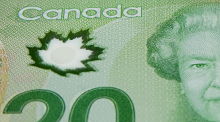
The waning strength of the Canadian dollar resulted in strong performance for foreign equity funds held by Canadian investors, while returns in domestic funds were disappointing, according to 2015 performance numbers provided by Toronto-based Morningstar Research Inc.
“The currency effect was the big story for the year,” says Christian Charest, web editor with Morningstar. “If you look at global index returns in local currencies, some markets are up and some are down slightly, but there’s nothing spectacular anywhere. The one constant for the winning funds for Canadian investors was beneficial exchange rate moves.”
According to Morningstar’s preliminary performance report for 2015, 29 of its 42 Canada fund indices measuring returns of funds across various categories rose during the year, including nine that gained more than 10%.
The star performer was the fund index tracking the European equity category, which rose by 19%. Other top-performing categories included global small-/mid-cap equity, up by 18.8%; international equity, up by 13.8%; Asia Pacific equity, up by 12.4%; and global equity, up by 11.9%.
The Canadian dollar depreciated sharply against many world currencies in 2015, which influenced returns for Canadians positively, while those investors dealing in local currency experienced mixed results. For example, France’s CAC40 index was up by 8.5% during the year, while Germany’s DAX index rose by 9.6% and the U.K.’s FTSE 100 index was down by 4.9% in local currencies.
However, the loonie dropped by almost 7% against the euro and by almost 12% against the British pound, benefiting Canadian investors with exposure to these markets.
The Morningstar report stresses that the performance of individual funds within U.S. and other foreign categories is affected strongly by each fund’s currency hedging policies — and those that hedged their currency exposure in 2015 significantly underperformed unhedged funds.
U.S. stocks were relatively flat in 2015, with the broadly based S&P 500 composite index increasing by a scant 1.4% for the year in U.S. dollars. But after factoring in the loonie’s significant 16.2% decline against the greenback, funds in Morningstar’s U.S. equity and U.S. small-/mid-cap categories both jumped by a healthy 13%.
Canadian equity funds, without the currency exchange benefits, were among the worst performers in 2015, with all five of Morningstar’s domestic equity fund indices suffering declines. Among the group, the best performance was the 0.7% decrease in the Canadian focused equity category, in which funds can invest up to half their holdings in foreign stocks.
The worst Canadian performer was the Canadian equity fund index, down by 6.2%. Energy and basic materials stocks were the main hindrance to Canadian equity funds’ performance, with both sectors sinking by more than 20% last year.
Funds specializing in natural resources were the biggest losers of 2015, as the price of oil and other commodities sank. Funds in the natural resources equity category dropped by an average of 21.8% while energy equity funds dropped by 24.6%.
In Asia, performance was mixed, with increases for the Shanghai composite index and Japan’s Nikkei 225, and losses for indices in Hong Kong and Taiwan. However, the loonie’s double-digit depreciation in percentage terms against the Chinese, Hong Kong and Japanese currencies boosted returns for Canadians holding Asian equities in these markets.
Morningstar’s results are preliminary, based on the change in net asset values in December, and don’t necessarily include all end-of-month income distributions. Final performance figures will be available next week.